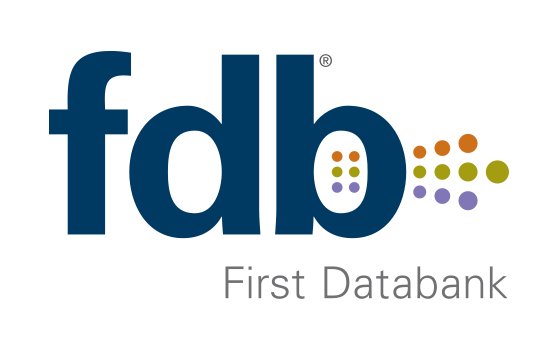 Greater scrutiny in prescribing amongst elderly patients may have prevented 26,000 falls in a single year, according to new analysis by Kent Surrey Sussex Academic Health Science Network (KSS AHSN).
Greater scrutiny in prescribing amongst elderly patients may have prevented 26,000 falls in a single year, according to new analysis by Kent Surrey Sussex Academic Health Science Network (KSS AHSN).
The review examined the benefits of healthcare professionals using a prescribing decision support technology to avoid risky prescription of anticholinergic drugs in elderly patients with dementia or a history of falls, that might then result in potential adverse side effects. These could include impaired cognitive function and further falls.
Undertaken by KSS AHSN, the analysis for 2019/20 calculated that 26,000 falls may have been prevented after it compared the many thousands of times primary care prescribers accepted messages presented through the OptimiseRx solution, against the assessed risk of a fall to patients in question.
The issue of falls in elderly people is a significant concern within the UK, especially at a time when hospitals are dealing with pressures of the coronavirus emergency. A third of elderly people in the UK are expected to suffer one fall a year, with half of those having two or more falls[1]. Currently hip fractures account for 1.8 million bed days nationally, costing the NHS £1.1 billion per year[2].
Ian Mylon, Head of Analytics Delivery, KSS AHSN, said: "Our initial analysis of specific messages presented to prescribers relating to anticholinergic drugs shows some potentially very positive outcomes for the management and reduction of a serious clinical issue for elderly people. It is an important step towards a full cost-benefit analysis to understand the holistic impact of the use of OptimiseRx on the healthcare system."
Anticholinergic drugs are commonly used to treat a range of conditions including irritable bowel syndrome, excessive drooling, and urinary incontinence. They do this by blocking the neurotransmitter acetylcholine which controls a wide range of functions, from digestion and blood pressure, to muscle function and memory and attention.
However, other drug classes including antidepressants, antipsychotics, and antihistamines can inadvertently affect the acetylcholine system and increase the "anticholinergic burden" for patients, leading to a higher risk of adverse effects, including blurred vision, constipation, dry mouth, disorientation and even delirium and falls.
The analysis, an economic benefit forecast, considered the impact from GPs and other prescribers accepting prescribing guidance messages presented through their clinical system by OptimiseRx, a prescribing decision support technology provided to thousands of GP practices by drug knowledge company FDB (First Databank).
The analysis also forecast millions of pounds in gross benefits for the NHS in specific areas it examined - including reductions in hip fractures, reduced A&E attendance related to falls and subsequent reductions in physio treatment for hip fractures.
OptimiseRx is a software solution local medicines optimisation teams can use to enable a message offering relevant local or national guidance to be presented to prescribers at the point of prescribing, when medications might be suboptimal for a patient or when a prescription requires additional actions, such as observations, tests, or a co-prescription. It supports healthcare professionals with patient specific messages through their existing clinical system relating to a huge range of medicines.
Currently, more than 65% of NHS commissioning bodies and thousands of GP practices use OptimiseRx to provide best practice prescribing guidance, covering an estimated 38 million patients.
Darren Nichols, managing director, FDB UK, said: "Having a fall is a traumatic experience for any patient, with a serious impact on their health and wellbeing and requiring wide health support, especially in the case of a fracture and subsequent recovery, which brings considerable cost to the NHS. Now more than ever at a time when people need to remain at home during the coronavirus crisis, we need to do everything we can to avoid adverse events that could potentially lead to avoidable hospital visits.
"The messages relayed through our system relating to anticholinergic burden are designed as a safeguard within primary care to avoid harmful impact from inappropriate and risky prescribing, and to guide GP practices. The analysis carried out by KSS AHSN demonstrates how prescribing alternatives for patients can make a difference. As we continue to work with CCGs, health boards and healthcare professionals to refine information presented, we hope that even more healthcare professionals will choose to act on OptimiseRx’s comprehensive range of best practice guidance messages to improve care even further."
The report into anticholinergic drugs, commissioned by FDB, is available on request.
About FDB
FDB (First Databank), part of the Hearst Health network, is the leading provider of drug knowledge that helps healthcare professionals make precise decisions. With thousands of customers worldwide, FDB enables our information system developer partners to deliver valuable, useful, and differentiated solutions. We offer four decades of experience in transforming medical knowledge into actionable, targeted, and effective solutions that help improve patient safety, operational efficiency, and healthcare outcomes.
About FDB OptimiseRx
FDB OptimiseRx® is the leading medicines optimisation solution for primary care in the UK. OptimiseRx combines evidence-based best practice, safety and cost-effective prescribing messages, and delivers them in real time at the point of care during the prescribing workflow.In use in more than 4,000 GP practices covering over 38m patients across the UK, OptimiseRx is the gold standard for prescribing decision support and medicines optimisation.
OptimiseRx is the only solution that delivers patient-specific prescribing guidance, integrated with prescribing workflows, supporting medicines optimisation at the point of care in EMIS Web, TPP SystmOne and Microtest Evolution. Tailored to the patient medical record, OptimiseRx takes into consideration current and previous medications, morbidities, observations and measurements to support prescribers to make the safest, most clinically appropriate prescribing decision.
1. NHS 2018 www.nhs.uk/conditions/Falls/
2. Public Health England, Updated January 2020 Falls: applying All Our Health